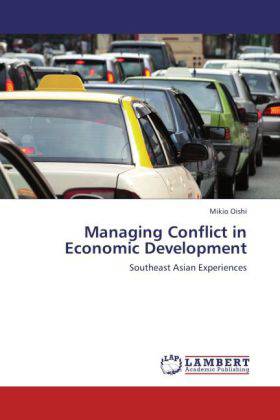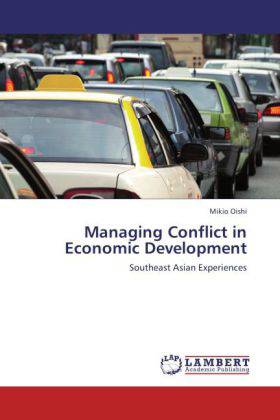
- Afhalen na 1 uur in een winkel met voorraad
- Gratis thuislevering in België vanaf € 30
- Ruim aanbod met 7 miljoen producten
- Afhalen na 1 uur in een winkel met voorraad
- Gratis thuislevering in België vanaf € 30
- Ruim aanbod met 7 miljoen producten
Zoeken
Managing Conflict in Economic Development
Southeast Asian Experiences
Mikio Oishi
Paperback | Engels
€ 77,95
+ 155 punten
Omschrijving
This study proposes the concept of domestic development-related conflict (DDR conflict) in developing countries, especially in the member states of the Association of Southeast Asian Nations (ASEAN). Focusing on DDR conflicts that took place in the region during its developmental authoritarian period, the study explores the possibility of a constructive, creative and humane way of managing this type of conflict. Among the findings of the study are: Several approaches of conflict resolution (CR) such as process advocacy, prenegotiation, problem-solving and reconciliation may be profitably adopted as alternatives to the dominant coercive methods of conflict management. There exists an indigenous process of CR carried out by local NGOs as 'reformer-mediators'. The empowerment of the weaker party is crucial for the purpose of not terminating a conflict prematurely and would contribute to the creation of a problem-solving space within the conflict, which would be transformed into a social learning process. The human dimension, spiritual and humanistic values and a sense of common good stressed by local NGOs, suggest a new form of mediation.
Specificaties
Betrokkenen
- Auteur(s):
- Uitgeverij:
Inhoud
- Aantal bladzijden:
- 320
- Taal:
- Engels
Eigenschappen
- Productcode (EAN):
- 9783847310204
- Verschijningsdatum:
- 21/12/2011
- Uitvoering:
- Paperback
- Formaat:
- Trade paperback (VS)
- Afmetingen:
- 152 mm x 229 mm
- Gewicht:
- 471 g

Alleen bij Standaard Boekhandel
+ 155 punten op je klantenkaart van Standaard Boekhandel
Beoordelingen
We publiceren alleen reviews die voldoen aan de voorwaarden voor reviews. Bekijk onze voorwaarden voor reviews.











